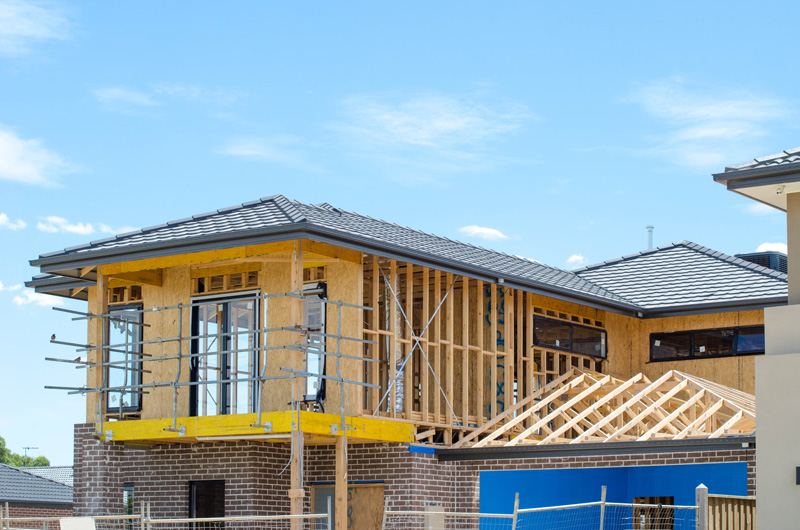Are you considering buying property off the plan in Australia? It can be an exciting and unique way to secure a new home or investment property, but it’s important to understand the pros and cons before making any decisions. In this article, we’ll walk you through the pros and cons of buying off the plan and how a licensed conveyancer can help make the decision and process a breeze.
What is Buying Off Plan?
Buying off the plan is a popular option for many first home buyers and property investors in Australia. The process involves purchasing a property before it is completed, based on a floor plan and artist’s impressions of the finished product. This is different to an existing property or established property, where you can physically see and inspect the property before buying.
One of the biggest incentives benefits of buying off-plan property is that it usually requires only a deposit of 10% of the purchase price (as opposed to the typical 20%), with the remainder due at settlement.
Benefits of buying off the plan
- Potential capital gains: One of the main advantages of buying off the plan is that the property may increase in value between the time of purchase and completion. This means that if you decide to sell the property after it’s built, you may be able to make a profit.
- Property is brand new: One of the main advantages of buying off the plan is that you’ll be purchasing a brand new property that hasn’t been lived in before. This means that there should be fewer maintenance and repair issues to deal with in the short term. Plus new properties often come with warranties or guarantees, which can give you peace of mind in case something does go wrong.
- Stamp duty concessions: Another potential benefit of buying off the plan is that you may be eligible for stamp duty concessions in some states. For example, in Victoria, if you’re buying your first home and the property is valued at under a certain amount, you may be eligible for a stamp duty exemption or concession. These concessions can save you thousands of dollars in upfront costs.
- Initial deposit is only 10%: When you buy off the plan, you usually only need to pay a small initial deposit upfront, typically around 10% of the purchase price. This can be a significant advantage if you’re trying to save for a property while still paying rent or other expenses. Plus, since the property won’t be completed for some time, you’ll have more time to save and prepare for the additional costs that come with buying a new property, such as conveyancing fees, loan fees, and moving expenses.
Risks of buying off the plan:
- Delays: Construction delays are common when buying off the plan, which can result in a longer wait time before you can move in. Additionally, delays can affect your ability to secure financing.
- Changes to property: The final product may not be exactly as you imagined it. Sometimes changes may occur to the design or layout due to unforeseen circumstances or issues.
- Financing: There may be additional costs or hurdles when it comes to securing financing for a property that hasn’t been built yet.
- Developer and builder reputation: It is essential to research the developer and builder’s reputation thoroughly to ensure that they have a good track record.
Tips to Protect Yourself When Buying Off Plan
- Do some research on the developer, builder, and architect to make sure they have a good reputation. This can help you avoid any unpleasant surprises later on.
- Check with the developer to see if they offer any of the benefits we talked about earlier, like stamp duty concessions or tax deductions. These could help you save money in the long run.
- Make sure you know what the process would be to fix any defects that are identified once the building is completed. You don’t want to be stuck with a property that has problems you can’t fix.
- Find out how you’re protected if the developer goes bankrupt before finishing the project. It’s important to know what your rights are in this type of financial situation.
- Take the time to read the contract carefully before you sign it. Get advice from an Australian conveyancer who can help you understand the costs and risks involved, as well as assist with things like the contract of sale, plan contracts, the cooling off period, disclosure statements and so on.
Understanding the Sunset Clause
When buying off the plan, it is essential to understand the sunset clause (AKA sunset dates) in the contract of sale. This clause sets a date by which the building work must be completed. If the building work is not completed by this date, the purchaser has the right to rescind the contract and receive their deposit back. Additionally, there is usually a cooling-off period during which the purchaser can withdraw from the contract without penalty.
How a Conveyancer Can Save You from Property Pitfalls when Buying Off-Plan
It is important to seek legal advice before entering into any contract of sale for off-plan purchases, as there are risks involved. Conveyancing is an essential step when buying any property, and off-plan purchases are no exception. Conveyancers can help with plan contracts and contract prices, and ensure that all necessary legal documents are in order. They can also assist in explaining the terms of the contract of sale and the disclosure statement.
They can review the contract to ensure it’s fair and that your interests are protected. They can also help you navigate the often-complex process of settlement, ensuring that all necessary paperwork is filed and that the transfer of ownership goes smoothly.
Additionally, a conveyancer can provide valuable advice on issues such as stamp duty, taxes, and other costs associated with the purchase. Overall, a conveyancer can provide you with peace of mind knowing that your investment is legally sound, and all necessary steps have been taken to protect your interests.
Buying Off-Plan? Get a Conveyancer On-Board for a Smooth Sailing
Buying off the plan is not without risks, and it is important to do your research and ensure that you understand all aspects of the purchase. It is important to assess the track record of the developer and to ensure that the property is being sold at market value. Additionally, it is important to take into account any depreciation that may occur before settlement, as well as any exemptions that may be available.
However, buying off the plan can be a great option if you’re keen to be a home owner with a brand-new property with the latest design and features. Just make sure you have the right team on your side. A conveyancer can be an invaluable resource in this process, providing you with the expertise and guidance needed to navigate the complex legal requirements involved in buying off the plan. So, if you’re considering buying off the plan, make sure you contact a conveyancer for help and support.
Get a free conveyancing quote
Obligation free quote for home and land conveyancing
Read More












